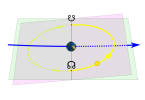If you’re new to basketball, you may be wondering what exactly a center does on the court. In this article, we’ll explore the role of the center in basketball and how they contribute to the game. From rebounding and blocking shots to setting screens and scoring points, centers are an essential part of any successful basketball team.
Whether you’re a player, coach, or fan, read on to discover the ins and outs of this crucial position and how it can impact the outcome of a game.
The Role of a Center in Basketball
As a center in basketball, you play a crucial role in both offense and defense. You are typically the tallest player on the court and are responsible for guarding the opposing team’s center. Here are some of the key responsibilities of a center in basketball:
Offense
- Scoring: One of the primary roles of a center is to score points for your team. You can do this by shooting close-range shots, such as layups and dunks, or by shooting mid-range jump shots. You may also be responsible for scoring points from free throws.
- Rebounding: Centers are also responsible for grabbing rebounds on both offense and defense. This means you need to be able to jump high and have good timing to grab the ball when it comes off the rim.
- Passing: Centers also need to be good passers. You may be called upon to pass the ball to your teammates when you are double-teamed or to set up a play.
Defense
- Blocking Shots: Centers are often the best shot blockers on the court because of their height and wingspan. You need to be able to jump high and time your jump correctly to block shots.
- Defending the Paint: Centers are responsible for defending the area around the basket, known as the paint. This means you need to be able to move quickly and stay in front of your opponent to prevent them from scoring.
- Rebounding: As mentioned earlier, centers are also responsible for grabbing rebounds on defense. This means you need to be able to box out your opponent and grab the ball when it comes off the rim.
Overall, the role of a center in basketball is to be a dominant force on both offense and defense. You need to be able to score points, grab rebounds, and defend the basket to help your team win.
Key Skills for a Center
As a center, you have a unique set of skills that are crucial to your team’s success. Here are some key skills that you should focus on developing:
Rebounding
One of the most important skills for a center is rebounding. You need to be able to grab the ball off the rim or make a play for a loose ball.
This means you need to have strong hands, good timing, and the ability to jump high. You should also be able to box out your opponent to give yourself a better chance of getting the rebound.
Post Play
As a center, you will spend a lot of time in the post. This means you need to have good footwork, be able to use your body to create space, and have a variety of moves to get past your defender. You should also be able to finish strong at the rim and draw fouls.
Defense
Defense is another critical skill for a center. You need to be able to protect the rim and block shots. This means you need to have good timing and be able to jump high. You should also be able to move your feet and stay in front of your opponent to prevent them from getting easy baskets.
Passing
While centers are not typically known for their passing skills, it is still an important part of the position. You need to be able to make quick and accurate passes out of the post to your teammates. This means you need to have good court vision and be able to read the defense.
Communication
Finally, as a center, you need to be a leader on the court. This means you need to communicate with your teammates and make sure everyone is on the same page.
You should be calling out plays, directing traffic, and encouraging your teammates. Good communication can make a big difference in the success of your team.
Offensive Responsibilities of a Center
As a center in basketball, you have several offensive responsibilities that are crucial to the success of your team. These responsibilities include scoring, setting screens, and rebounding. Here’s what you need to know about each of these responsibilities:
Scoring
One of the most important offensive responsibilities of a center is scoring. You are typically the tallest player on the court, which means you have an advantage when it comes to scoring close to the basket. You should be able to score using a variety of moves, including layups, dunks, and hook shots.
In addition to scoring close to the basket, you may also be called upon to shoot from mid-range or even from beyond the three-point line. While this is not your primary role, it’s important to be able to make these shots when they are available.
Setting Screens
Another important offensive responsibility of a center is setting screens. A screen is when you stand in the way of a defender to free up one of your teammates for a shot or a drive to the basket. Setting screens requires good timing and communication with your teammates.
When setting screens, it’s important to be aware of where the ball is and where your teammates are on the court. You should also be prepared to roll to the basket after setting the screen, in case you become open for a pass.
Rebounding
Finally, as a center, you have an important responsibility when it comes to rebounding. Rebounding is when you grab a missed shot by your opponent or one of your teammates. This gives your team another chance to score and prevents your opponent from getting an easy basket.
To be a good rebounder, you need to be quick and have good positioning. You should also be able to jump high and have good hands to grab the ball. When rebounding, it’s important to be aware of your surroundings and be prepared to make an outlet pass to one of your teammates.
Defensive Responsibilities of a Center
As a center, you are an essential part of your team’s defense. Your size and strength make you an intimidating presence on the court, and you have specific responsibilities to ensure that your team is successful on defense. Here are some of the defensive responsibilities of a center:
Blocking Shots
One of the most critical defensive responsibilities of a center is to block shots. You need to be able to time your jump correctly and use your height to your advantage to block shots.
When you block a shot, you not only prevent the other team from scoring, but you also give your team a boost of energy and momentum.
Keep in mind that you don’t always have to block the shot to be effective. Sometimes, just altering the shot can be enough to throw off the shooter’s rhythm.
Defensive Rebounding
Another essential responsibility of a center is to grab defensive rebounds. When the other team misses a shot, you need to be in a position to grab the rebound and start a fast break for your team.
Rebounding requires a combination of strength, positioning, and timing. You need to be able to box out your opponent and jump at the right moment to grab the ball.
Guarding the Paint
Finally, as a center, you need to be able to guard the paint. The paint is the area around the basket, and it’s where most of the action takes place. You need to be able to defend against other players who are driving to the basket and prevent them from scoring. This requires quick reflexes, good footwork, and the ability to anticipate your opponent’s moves.
Famous Centers and Their Impact
As a basketball fan, you know that the center position is one of the most important positions on the court. Throughout the years, there have been many famous centers who have made a significant impact on the game. Here are just a few:
Wilt Chamberlain
One of the most dominant centers of all time, Wilt Chamberlain was known for his incredible scoring ability and his dominance on the glass.
He holds numerous records, including the most points scored in a single game (100) and the most rebounds in a single game (55). Chamberlain’s impact on the game cannot be overstated, and he is widely regarded as one of the greatest players of all time.
Shaquille O’Neal
Another dominant center, Shaquille O’Neal was a force to be reckoned with during his playing days. Standing at 7’1″ and weighing over 300 pounds, Shaq was nearly impossible to stop in the paint.
He won four NBA championships during his career and was named the NBA Finals MVP three times. Shaq’s impact on the game can still be felt today, as many current players model their game after him.
Kareem Abdul-Jabbar
Kareem Abdul-Jabbar is another legendary center who made a huge impact on the game. He is the NBA’s all-time leading scorer, with 38,387 points to his name.
Abdul-Jabbar was known for his signature “skyhook” shot, which was nearly impossible to block. He won six NBA championships during his career and was named the league’s MVP six times as well. Kareem’s impact on the game is still felt today, as many players try to emulate his signature shot.
As you can see, the center position has produced some truly legendary players over the years. These players, and many others like them, have helped to shape the game of basketball into what it is today.
Conclusion
In conclusion, the center position is a crucial role in basketball. As the tallest player on the court, you are responsible for rebounding, defending the paint, and setting screens for your teammates to get open.
Your size and strength make you a valuable asset on both the offensive and defensive ends of the court. You can use your size to create space and score points close to the basket, and you can also defend against opposing players attempting to do the same.
It’s important to have good communication with your teammates, especially the point guard, to ensure that you are in the right position and ready to receive the ball. You should also work on your footwork and agility to be able to move quickly and effectively on the court.
Overall, being a center requires a combination of physical attributes, technical skills, and teamwork. By mastering these aspects, you can become a dominant force on the court and help lead your team to victory.








